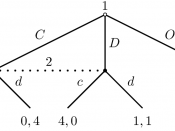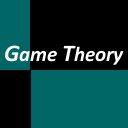What is Game Theory? Description
Game Theory is a special branch of mathematics which has been developed for studying decision-making in complexed circumstances. The idea to see business is usual in modern strategic thinking. The meaning of "Game" here is: a move by one player will result in moves by others. The idea historically dates back to the Talmud and Sun Tzu's writings. However, the contemporary codification is attributed to John von Neumann and Oskar Morgenstern. They published the Theory of Games and Economic Behavior in 1944. In the early 1950s, John Nash generalized these results and provided the basis of the modern field of Game Theory. A rapid rise in theoretical developments led to the founding of the first academic magazine devoted to the field by Oskar Morgenstern in 1972. Few corporations nowadays think about their strategy without adding some game theory models or game elements into their strategy process.
Game theory can be defined as the study of how people interact and make decisions. This broad definition applies to most of the social sciences, but game theory applies mathematical models to this interaction under the assumption that each person's behavior impacts the well-being of all other participants in the game. These models are often quite simplified abstractions of real-world interactions. While many game theorists certainly enjoy playing games, a "game" is an abstract representation of many serious situations and has a serious purpose.
Assumptions in Game Theory
A major issue with game theory is: it is necessary to make assumptions. Any model of the real world must make assumptions that simplify the reality, because the real world is too complex to analyze with any precision. There is a constant tradeoff between realism and the technical capability to solve problems. Even if one could write down a model...


